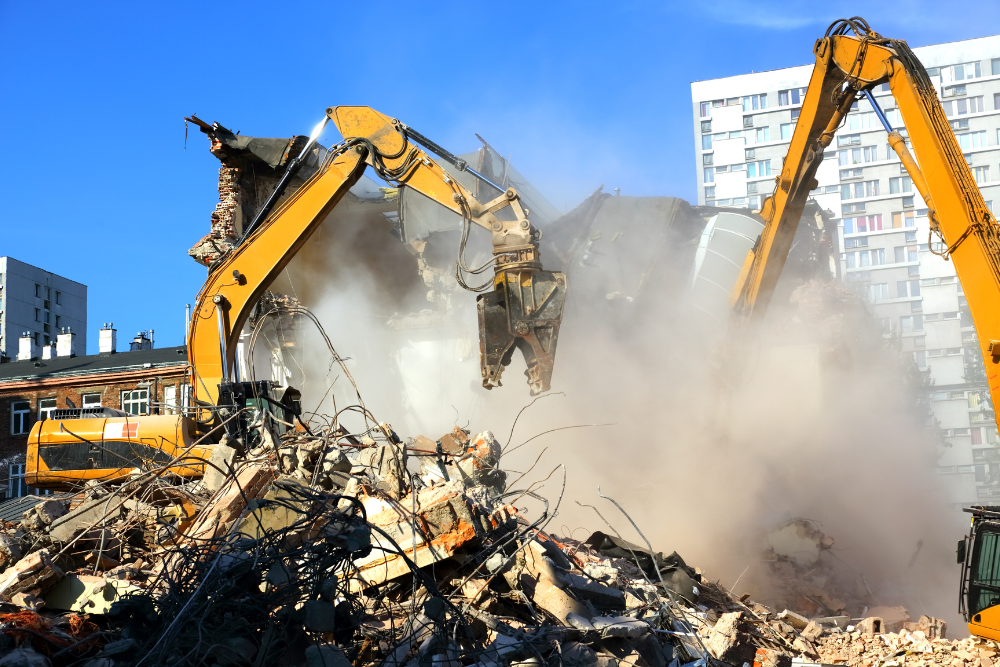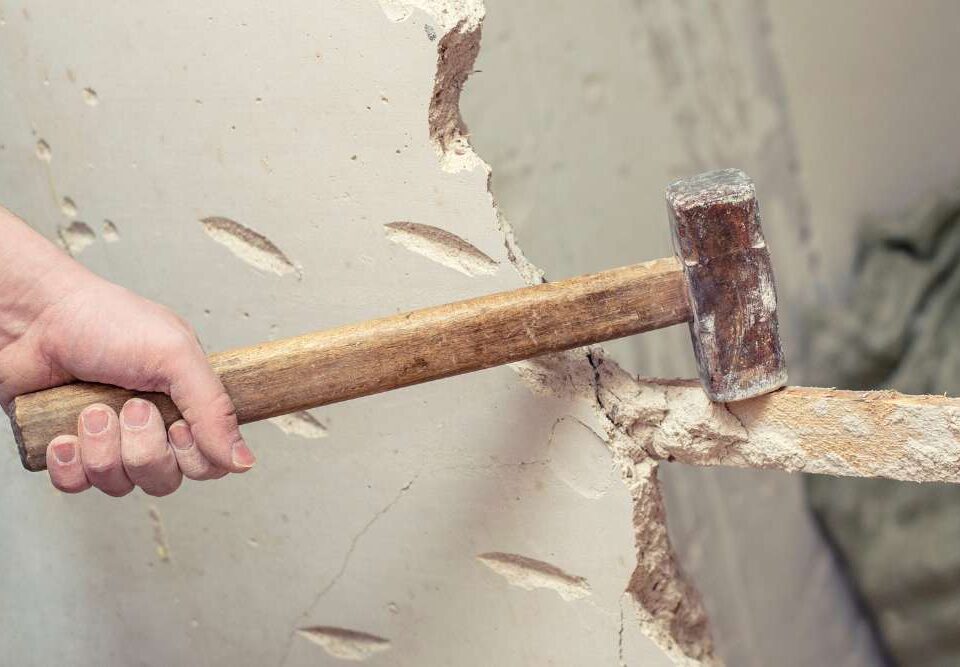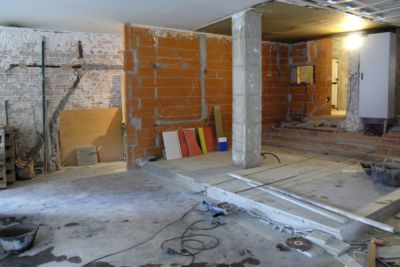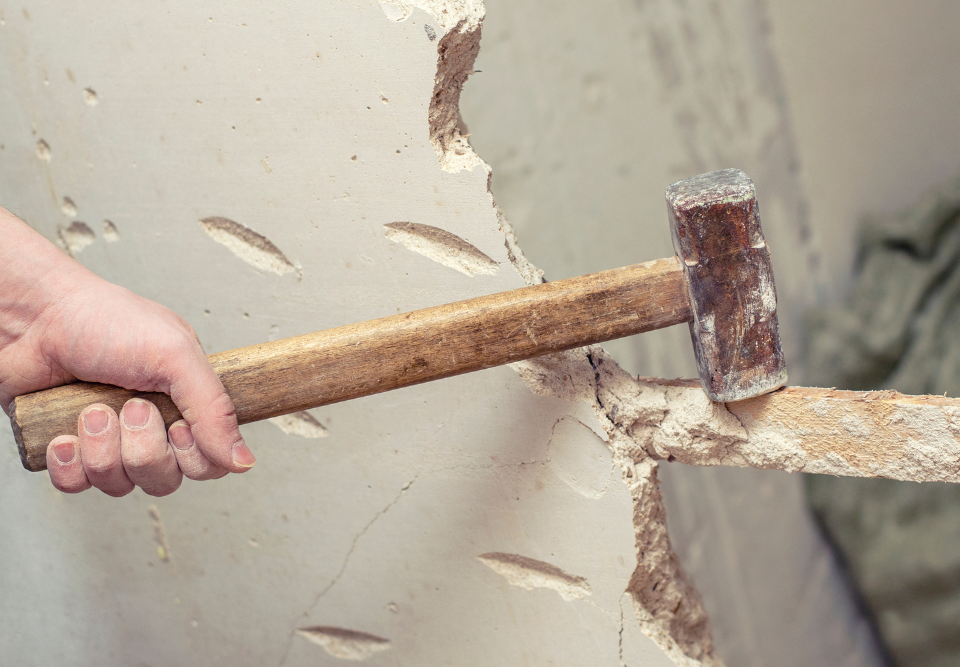
How Drywall Removal Affects Your Home’s Value
September 4, 2025
Safe Practices for Playset Removal
September 4, 2025Deck Removal A Practical Solution for Outdoor Clutter
The Journey Begins with Sorting
Once demolition cleanup is underway, the first crucial step is sorting the debris. This process involves categorizing materials such as wood, metal, concrete, glass, and drywall. By separating these items, the cleanup crew ensures that each material is handled appropriately, facilitating recycling and reducing landfill waste. For instance, metals like steel and aluminum can be melted down and reused, while concrete can be crushed and repurposed as aggregate in new construction projects.
Sorting also helps in identifying hazardous materials like asbestos or lead-based paint, which require special handling and disposal methods to prevent environmental contamination and health risks. Proper segregation at this stage is vital for compliance with safety regulations and environmental standards. It also streamlines the subsequent steps of transportation and processing, making the entire demolition cleanup process more efficient and eco-friendly.
Transportation to Processing Facilities
After sorting, the next phase involves transporting the categorized debris to appropriate processing facilities. These facilities are equipped to handle specific types of waste, ensuring that each material is processed in the most effective and environmentally responsible manner. For example, metals are sent to recycling centers where they are melted and reformed, while concrete is taken to crushing plants to be turned into reusable aggregate.
The transportation process is carefully managed to minimize environmental impact. Trucks are loaded efficiently to reduce the number of trips, and routes are planned to avoid congested areas, saving time and fuel. This logistical planning not only supports sustainability efforts but also ensures that the debris is processed promptly, allowing for the timely completion of the demolition project and preparation of the site for future development.
Recycling and Repurposing Materials
Recycling is a cornerstone of modern demolition cleanup practices. Many materials salvaged from demolition sites have significant reuse potential. Wood can be repurposed for furniture or flooring, metals can be melted down and reformed into new products, and concrete can be crushed and used as aggregate in new construction projects. This approach not only conserves natural resources but also reduces the demand for new raw materials, leading to a decrease in environmental degradation.
Additionally, recycling helps in reducing the volume of waste sent to landfills, alleviating pressure on these sites and extending their lifespan. It also contributes to the circular economy by keeping materials in use for as long as possible, thereby promoting sustainability. By choosing to recycle demolition debris, property owners and contractors play a pivotal role in environmental conservation and resource efficiency.
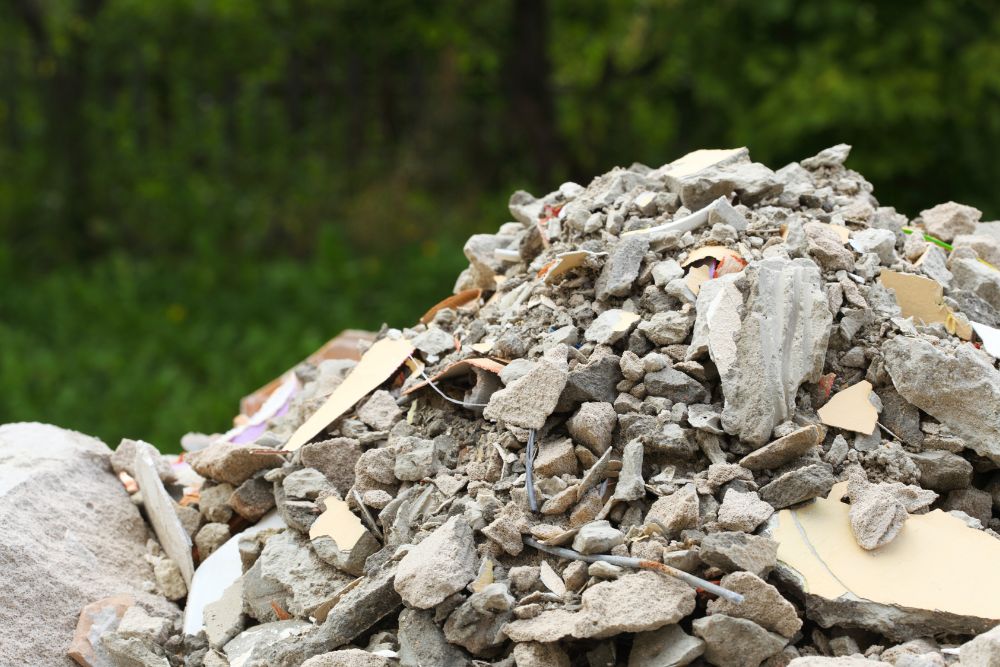
Disposal of Non-Recyclable Materials
Not all materials from a demolition site can be recycled. Some items, due to contamination or composition, are deemed non-recyclable and must be disposed of properly to prevent environmental harm. These materials are typically sent to designated landfills that are equipped to handle specific types of waste, ensuring that they are contained and managed in a way that minimizes their impact on the surrounding environment.
The disposal process for non-recyclable materials is subject to strict regulations to ensure safety and compliance with environmental standards. Landfills are monitored for leachate and gas emissions, and measures are in place to prevent contamination of soil and groundwater. Proper disposal of these materials is essential to maintaining environmental health and adhering to legal requirements, underscoring the importance of responsible waste management in demolition projects.
Hazardous Waste Management
Demolition sites often contain hazardous materials such as asbestos, lead-based paint, or chemicals, which pose significant risks to health and the environment. Managing these substances requires specialized knowledge and equipment to ensure safe removal, transport, and disposal. Certified professionals are trained to handle hazardous waste, following stringent protocols to mitigate exposure and contamination.
Once removed, hazardous materials are transported to licensed disposal facilities designed to manage such waste safely. These facilities are equipped with the necessary infrastructure to contain and treat hazardous substances, preventing them from entering the ecosystem. Proper hazardous waste management is not only a legal requirement but also a moral obligation to protect public health and the environment from the dangers posed by these materials.
Environmental Impact Considerations
The environmental impact of demolition debris management is a critical consideration throughout the cleanup process. From sorting and recycling to disposal, each step is designed to minimize harm to the environment. By diverting recyclable materials from landfills, reducing emissions during transportation, and ensuring safe disposal of hazardous substances, the demolition industry strives to lessen its ecological footprint.
Moreover, many demolition companies are adopting green building practices and sustainable demolition methods, such as deconstruction, which involves carefully dismantling structures to salvage materials for reuse. These practices not only reduce waste but also conserve resources and energy, contributing to a more sustainable construction industry. Emphasizing environmental responsibility in demolition projects helps in preserving natural habitats and promoting a healthier planet.
Legal and Regulatory Compliance
Demolition cleanup is governed by a complex framework of local, state, and federal regulations aimed at ensuring safety and environmental protection. These laws dictate how materials should be handled, transported, and disposed of, and they specify the necessary permits and documentation required for each phase of the process. Compliance with these regulations is mandatory and failure to adhere can result in fines, legal action, and damage to a company’s reputation.
To navigate this regulatory landscape, demolition companies must stay informed about current laws and best practices. This often involves regular training for staff, updating equipment and procedures to meet legal standards, and maintaining accurate records of waste management activities. By prioritizing legal and regulatory compliance, demolition companies not only avoid legal repercussions but also demonstrate their commitment to responsible and ethical business practices.
Community and Economic Benefits
Proper demolition cleanup and debris management extend beyond environmental considerations; they also offer significant community and economic benefits. By recycling and repurposing materials, valuable resources are retained within the community, supporting local industries and reducing the need for imported materials. This contributes to economic stability and growth, fostering a circular economy where resources are continually reused and recycled.
Furthermore, responsible demolition practices can lead to cleaner, safer neighborhoods. Removing hazardous materials and properly managing waste reduces health risks and enhances the quality of life for residents. It also paves the way for new developments that can revitalize areas, create jobs, and improve infrastructure, thereby benefiting the community as a whole.
The Role of Professional Junk Removal Services
Engaging professional junk removal services plays a pivotal role in ensuring that demolition debris is handled efficiently and responsibly. These services bring expertise, equipment, and manpower to the cleanup process, streamlining operations and ensuring compliance with regulations. They are adept at sorting materials, identifying hazardous substances, and coordinating transportation to appropriate facilities.
Moreover, professional junk removal services often have established partnerships with recycling centers and disposal facilities, facilitating the proper processing of materials. Their involvement not only accelerates the cleanup process but also enhances the sustainability of the project by maximizing recycling efforts and minimizing landfill use. Choosing professional services ensures that demolition debris is managed in the most effective and environmentally friendly manner possible.
Conclusion
Understanding the journey of your debris after demolition cleanup highlights the importance of responsible waste management practices. From sorting and recycling to proper disposal, each step is crucial in minimizing environmental impact and promoting sustainability. By engaging professional services, adhering to legal regulations, and prioritizing recycling, property owners and contractors can contribute to a cleaner, healthier environment.
For residents in Santa Rosa, California, seeking reliable and eco-friendly junk removal services, North Bay Junk Removal offers comprehensive solutions. With a commitment to sustainability and customer satisfaction, they ensure that your demolition debris is handled with the utmost care and responsibility. Reach out today at 707-478-6817 to schedule a pickup and take the first step toward a cleaner, greener future.

